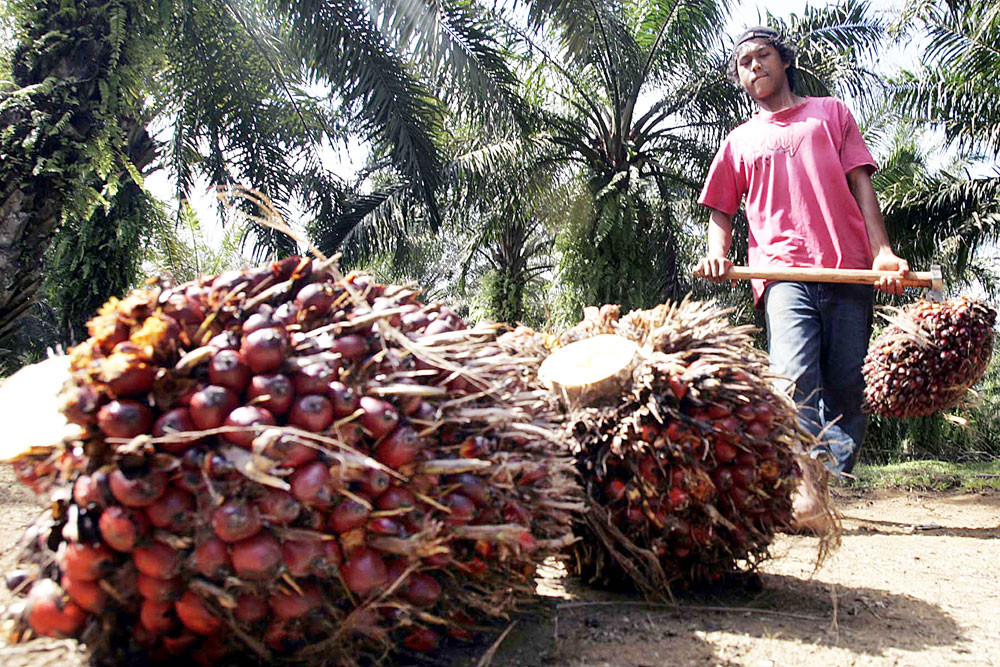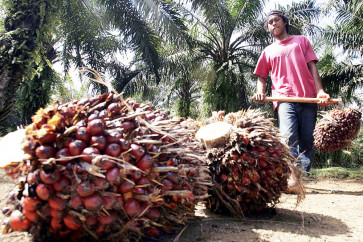Popular Reads
Top Results
Can't find what you're looking for?
View all search resultsPopular Reads
Top Results
Can't find what you're looking for?
View all search resultsOil palm plantations creep onto coast, small islands in Indonesia
“Palm oil needs a lot of land. Of course it will sacrifice the forest. Deforestation, land degradation and agrarian conflicts are bound to occur,” one activist said.
Change text size
Gift Premium Articles
to Anyone
A
lthough oil palm plantations are usually associated with inland deforestation, some have expanded into coastal areas and small islands, activists have noted, raising concerns about additional environmental degradation and the loss of fishing livelihoods.
Oil palms are grown primarily within 10 degrees latitude of the equator. They can be cultivated at altitudes higher than 500 meters above sea level, but they are more productive on lowlands. They can grow in various soils, with admixtures of sand, volcanic soil, alluvial clay and peat.
Data compiled by the Coalition for Fisheries Justice Indonesia (KIARA) suggests that in 2018, there were about 675,791 hectares of oil palm plantations in districts with coastlines and on islands of less than 2,000 square kilometers.
“Based on that figure, we believe that oil palm plantations do not only affect inland areas but also coastal areas and small islands today,” Susan Herawati of KIARA said during a recent online discussion.
Oil palm plantations in coastal areas, Susan said, even if those areas were not inhabited by humans, could be detrimental to nearby mangroves, which were prime breeding grounds for fish that Indonesian fisheries depended on.
The Agriculture Ministry estimates that Indonesia has approximately 16.38 million ha of oil palm plantations. The ministry and other relevant government offices, however, do not have specific data on how many oil palm plantations are located in each coastal region and small island of the country.
The Environment and Forestry Ministry only records the number of oil palm plantations located in existing and former forests, according to its spokesman, Nunu Anugrah.


















